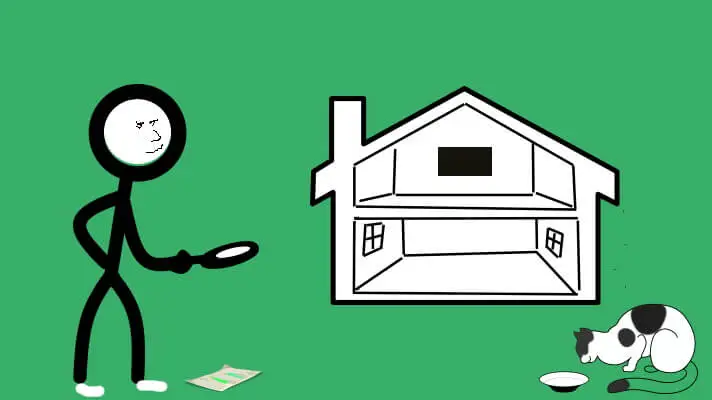A home inspector career has many benefits. If practicing it full-time, it could be a rewarding way to earn income while helping home buyers and investors in real estate avoid potential risks. If doing it part-time (for people working other jobs), it could be a great way to make extra income while helping others. Learning how to do home inspections arms you with a skill set that could be useful throughout your life.
Experienced home inspectors can earn up to $100 per hour. But what else makes an inspection career interesting?
1. Train in Your Spare Time
You will decide how your day goes. You decide when to take on work and do inspections. And when not to. If you already have a full-time job, a home inspection gig could be a profitable on the side.
Many people with non-standard schedules, like firefighters or paramedics, start a home inspection business on top of their main job to keep busy and make extra money. A significant number of home inspection students hold down full-time jobs while learning how to become home inspectors.
2. Be Your Own Boss
This flexibility allows professional home inspectors to be their own bosses. In addition, it offers them income control. For example, if you're a single parent who needs to support yourself and your family, being a home inspector may be a great option for you.
3. Work That Makes Meaning
The purchase of a home is typically one of the most significant investments a person will ever make in their lifetime. This could be a daunting task for the average person, hence the need for professionals like realtors and home inspectors.
Home inspections aren't just about making sure a house is structurally sound; they're about making sure that the buyer gets what he or she wants. This includes finding problems that could negatively affect the value of a property, or quality of life, such as water damage or mold growth.
As a home inspector, you'll work closely with clients and sellers to determine whether a property is worth buying or selling.
4. Types of Home Inspection
There are different types of home inspections, each requiring different skill sets. Usually, a regular home inspector visually inspects a home to find out what condition it is in. But a structural inspector can delve deeper to inspect like foundation, roofs, wall integrity and other structural issues. There is also mechanical, electrical and plumbing (MEP) inspection that check to ensure that things like electrical wiring, plumbing, heating/cooling systems and appliances work well.
5. After Training, Then What?
After your training as a home inspector, you will need to hustle to get clients. But, hopefully, as time goes on, you'll start to receive more recommendations if you’ve built enough goodwill and marketed yourself. Your home inspections business may actually start to take up more of your calendar. Some people, at that point, may decide to switch from doing it part-time to having a home inspection business full-time.
6. High Earning Potential
The average salary for a licensed home inspector since May 2021 is $61,640 per year, according to the Bureau of Labor Statistics . That's higher than the national median household income of $44.225 .
7. High Demand Career
According to the U.S. Department of Commerce, employment opportunities for home inspectors are expected to grow by 19% to 29% from 2012 to 2022.
8. Allows You to Travel
Many home inspectors travel throughout the country inspecting properties. Changing your environment might provide financial benefits while also providing a welcome break. It does not get better than this!
What Does a Home Inspector Do?
Depending on training or specialization, a home inspector performs an extensive visual or other examination of a property to identify any issues that could potentially impact its value. He or she looks at things like:
● Roof: Roofs can leak, causing rot and mold to form.
● Foundation: Foundations can crack and settle, which can cause structural damage.
● Electrical inspections: Electrical wiring can short circuit, causing fire hazards.
● Plumbing System: Plumbing leaks can lead to costly repairs.
● Appliances: Appliances can stop working properly, which can cost thousands of dollars to fix.
● Windows & Doors: Windows can become damaged, allowing pests inside.
Overall, anything that has to do with the exterior or interior of a building can be inspected.
How to Become a Home Inspector
In the U.S., the requirements for becoming a home inspector vary from state to state. While some states require as little as 60 hours of training, others may require up to 400 hours. At the time of writing this, states like Michigan and Minnesota require no formal licensing at all. To see what the requirement is for your state, a good place to start is:
https://www.spectora.com/r/home-inspector-license-requirements-map/
If in a different country, be sure to check what applies in your area.
Is Experience in Construction Necessary?
No. While it helps to have experience in construction, it isn't necessary. In fact, many home inspectors start their careers without any prior experience in construction or real estate.
A Potential Opportunity for Getting Home Inspection Business
If you already work as a home inspector, consider offering your services on the www.inspectionally.com marketplace platform by signing up and posting what them. As a business person, increasing your chances of getting found also increases our chances of getting hired. That’s a good thing.


